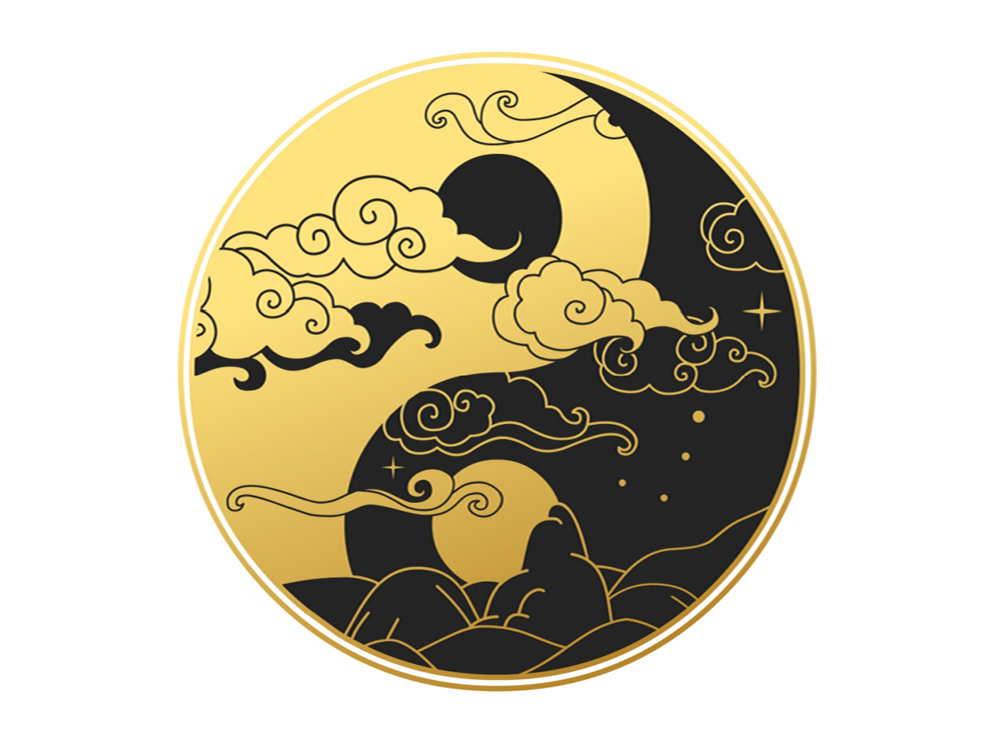Jenny Hall
Verses from The Dhammapada 59
The pitch black of the darkness holds many secrets, some terrifying but others sublime. Jenny Hall explores what it really means to bring light to this darkness.
 ©
© shutterstock
‘So the disciple of the enlightened One will shine in the darkness around him among the refuse of the ignorant, spreading the sweet scent of his wisdom.’
This verse points to the Buddha Nature with which we are all endowed.
Candles and Christmas tree lights bring radiance to the dark December days. Perhaps we lose a young child’s first rapturous response to the twinkling decorations. A small child is not hampered by self-consciousness. He/she gazes up at the shining star at the top of the tree and joyfully becomes ‘one’ with it. As we become older, we may only occasionally experience such self- forgetting. Most of the time, constant thought streams, driven by craving for and clinging to the transient, perpetuate the delusion of ‘me’ and all ‘my’ problems.
The Buddha’s quest was to discover the way out of such suffering. It culminated in a wholehearted sitting under the Bodhi tree all night. Mara, Lord of Desire and Attachment was unable to shake the Buddha’s resolve. Mara even sent demons to terrify him. They failed to disturb him. At daybreak, the Buddha looked up at the sky. Choiceless Awareness (a phrase used by the sage Krishnamurti similar to Buddha Nature), became ‘one’ with the glittering morning star. On December 8th we remember this in gratitude.
‘So, the disciple of the Enlightened One… ‘
In the verse, ‘disciple’ refers to us when we also wholeheartedly give ourselves away, whether sitting zazen or following the daily timetable. The Buddha Nature is then revealed. It is our True Nature, the life of the Enlightened One. It is a life flowing with wisdom expressed as compassion, goodwill, sympathetic joy and an unshakeable serenity.
‘… will shine in the darkness around them amongst the refuse of the ignorant… ‘
Initially we may be rather dismayed to find that following the Buddha’s Way involves acknowledging aspects of ourselves that we prefer either to repress or ignore.
There was a young man who visited a monastery in Tibet in order to consult with a wise Lama. He explained to the Lama that he had heard him speak about kindness and compassion many times. However, as soon as he returned home there were problems. He said his work colleagues were difficult to get on with, his boss was unreasonable and worked him too hard. His wife was argumentative. His children were unruly and hard to discipline. His in-laws were demanding. His neighbours were unfriendly. The young man told the Lama that his teachings were too idealistic. The Lama smiled and pointed out that the young man was rather like a patient who had been given some medicine by his doctor. The patient took it home and left it in a cupboard without taking it. Not surprisingly the patient didn’t get better. The Lama explained that in the same way, the Buddha’s teaching needed to be actually ‘tasted’.
Like the young man in the story, we are often keen to project what the verse calls the ‘darkness’ and ‘the refuse of the ignorant’ onto others. We fail to recognise them in ourselves. The delusion of ‘I’ is in ‘darkness’ because it is unable to see reality clearly. Driven by desire and hate, its actions create harm. We constantly waste this precious energy though expression or repression. Tasting the Buddha’s teaching involves recognising the energy. It means inviting it to ‘burn me away’. When we suffer the discomfort of its churning and burning, it is transmuted into the warmth and compassion of the Buddha Nature.
At the beginning of the Ukrainian conflict some very moving photographs appeared in the media. They showed mothers holding their new-born babies. Thy had given birth alonside the wailing of air raid sirens and the sound of bombs exploding. The cellars in which they were raced to shelter were damp, cold and crumbling. In the same way that new life emerged from the most uncomfortable conditions imaginable, so the Buddha Nature emerges when we endure the discomfort of the emotional onslaughts.
As a parent lovingly cradles a new-born child, so also does the Buddha Nature embrace whatever arises. It is ‘one’ with all, as a mother is at one with her child.
‘… spreading the sweet scent of his wisdom.’
A doctor’s response after being attacked recently illustrate such at-one-ment. He said a young man knocked as his door. When he opened it, the young man stabbed him in the chest. The doctor said that he felt no animosity. The incident had been shared by both of them. The young man’s life had been changed forever. It was possible he would be locked up for a long time. Neither he nor his family would escape the consequences of that one act. The doctor said that on the other hand, he had survived the stabbing and had recovered. He said he felt very deep sadness of the young man.
We cannot help but be touched by such empathy. With ‘I’ emptied out everything is accepted as it is. Such compassion is empty of all intention.
As Kuo-an expresses it in a poem associated with one of the Bull-Herding pictures:
‘Without troubling himself to work miracles
Suddenly dead trees break into bloom.’




































































